rbb Television, 2.15 p.m.
Working in the steep vineyards high above the Moselle is Andrea Thielen's passion - the expansive view and the tranquillity give the winemaker the energy she needs to manage her parents' winegrowing business. The steep vineyards on the Middle Mosel are cultivated by hand, as they always have been. The traditional family winery focuses, among other things, on red wines and produces fine spirits in its own distillery. The trained occupational therapist completed an apprenticeship as a winemaker only a few years ago in order to be able to take over her parents' winery together with her husband Peter. For her countrywomen's menu, the mother of two relies on regional cuisine. Flour dumplings are a speciality of the Moselle region; they used to be taken to the vineyards and served as a substantial vintner's meal, either savoury or sweet. The 41-year-old serves them as a side dish to Burgundy roast.
arte, 8.15 p.m.
For the sixth time, Simon Polt, retired gendarme and now winegrower, investigates in the idyllic Wiesbach Valley. Then a misfortune happens and destroys the tranquil idyll: the daughter of one of the most respected, because most modern and trendiest winegrowers of the valley dies the night after the autumn magic.
Phoenix, 21.00
On the volcanic soils of La Palma, viticulture has a 500-year-old tradition. The mineral-rich lava soils are ideal for the vines. Victoria Torres learned the winemaking trade from her father. The family's wine-growing area in the south is one of the oldest on the island. La Palma is called "La Isla Bonita", the beautiful island. Victoria Torres cannot escape this beauty either. After long stays abroad, she has remembered her roots and is fulfilling a dream here. She cultivates old vineyards again and harvests Malvasia grapes. On Saturday, 3 February, 8.00 and 18.00 hrs.
Phoenix, 21.45 hrs
On Lanzarote, countless volcanic eruptions have formed a bizarre lunar landscape. To extract food from the karstic, dry soil is a great challenge for the inhabitants. And yet they even manage to produce wine. Protected by thousands of small hollows that act as water reservoirs, they grow vines on porous volcanic rock. On Saturday, 3 February, 8.45 a.m. and 6.45 p.m.
SWR Television, 7.00 a.m.
In the depths of the Saarland lie raw materials that have had a decisive influence on the history of this region. The iron industry in the Saarland can be traced back to the Celts. Even ingredients for fine porcelain can be found in the soil of the Saarland, as well as nutrients that allow wine to thrive here. Around the small town of Perl, the wines of the region grow predominantly on the shell limestone soils found there. With winemaker Ollinger, we get to the bottom of the wine and find ourselves in the ancient strata from the Triassic period.
3sat, 3 .00 p.m.
Lojze Wieser and Martin Traxl undertake a culinary voyage of discovery through Friuli. Maize and polenta have been the main source of food in the region for centuries. They still play an important role today in dishes such as Toc in Braide or as a side dish to Pestàt di Fagangna. Although the region is one of the richest in Italy, Friulian cuisine owes its inspiration to traditional "poor cuisine". Probably the best-known culinary speciality of Friuli is prosciutto, which is produced in San Daniele and thrives here thanks to the special climate and time-honoured recipes. The banks of the Tagliamento are also ideal breeding ground for wine. In recent decades in particular, efforts have been made in Friuli to revive the diversity of autochthonous grape varieties and to give many wine varieties that had fallen into oblivion a new future, for example by the winegrower Emilio Bulfon. On Tuesday, 6 February, 11.40 am.
3sat, 6.00 a.m.
In contrast to the south of the US state, the north of California is rather unknown. Filmmaker Jörg Daniel Hissen travels along the Pacific coast of Northern California. Mexican immigrant and winemaker Ulises Valdez tells how the American dream came true for him. Young organic farmers proudly show off their farm.
ORF 2, 9.05 a.m.
The last stage of the search for traces of Lorenzo de Medici, the descendant of the famous Medici noble family, begins in the small town of Montalcino, not far from Siena, world-famous for its "Brunello" wine. He visits Massimo Ferragamo, the head of the American branch of the fashion dynasty, who has discovered his love for viticulture. The Frescobaldi family, on the other hand, has been devoted to viticulture for almost 800 years. The patron of Tuscany's oldest wine dynasty, Leonardo de Frescobaldi, receives Lorenzo de Medici in his Villa Castiglioni. De Medici notes some parallels between the Frescobaldis and the Medicis. Lorenzo de Medici takes leave of Tuscany at the Villa La Ferdinanda, once owned by his ancestors.
arte, 13.00
A few hundred kilometres east of the port city Porto offer spectacular views of the man-made vineyards of the Douro Valley. This is where the grapes from which the famous port wine is made grow. It owes its aroma to the barren soils - and to the people who extract the good drop from them.
Bavarian Television, 3.30 p.m.
The "Närrische Weinprobe" (Foolish Wine Tasting) from the State Court Cellar of the Residenz in Würzburg offers genuine Franconian originals.
Bavarian Television, 10.00 p.m.
Oti Schmelzer is a passionate winemaker, cabaret artist and road maintenance worker at the Knetzgau motorway maintenance department in Lower Franconia. Since 2011, he has been part of the permanent artist roster of "Fastnacht in Franken" and is enjoying growing popularity. But at home it takes a long time before he receives the longed-for recognition from his parents as a comedian and for his radical modernisation of the inherited farm. When the older brothers do not take over the farm with agriculture and vineyard, Oti becomes the farm heir. And he brings new ideas with him and radically restructures the farm against the parents' resistance: he sells the cattle and focuses entirely on growing grapes. And the much-longed-for praise from his parents finally arrives. But Oti's viticulture has long become the most important thing to him. His 90-year-old mother says: "Otmar is a little bit of a deafie", referring to Oti the winegrower and Otmar the comedian.
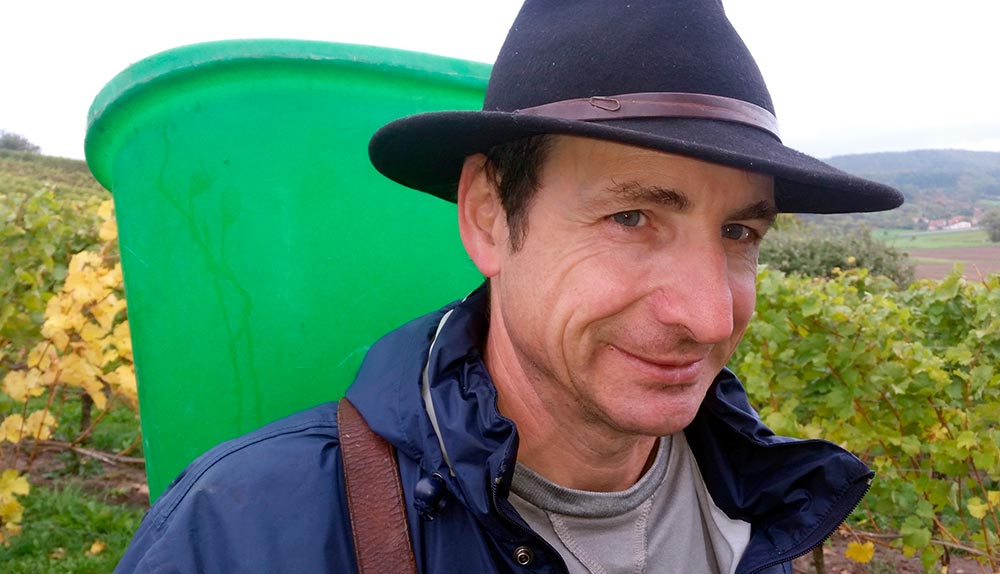 |
WDR Television, 9.00 p.m.
Beer was probably invented before bread. And there were reasons for that! Alcohol relaxes and disinhibits, it's fun - but it kills quite a few people. How much is too much? The daily glass of red wine - healthy or unhealthy? Where is the border between "having a drink" and addiction? Shown again on Sunday, 11 February, 16.15 on ARD-alpha and on Saturday, 24 February, at 11.00 on WDR television.
SWR Television, 5.45 a.m.
The province in the south-east of Austria has a very varied landscape: the Alps dominate in the north, overlooked by the Dachstein massif and its glacier. In the south, one encounters rather gentle ranges of hills. The soil is fertile, wine, apples and pumpkins thrive.
arte, 11.25 a.m.
Like many Romans, Ausonius found his great love here: Bissula. What else will he have missed besides the southern sun? Wine. It was the Romans who brought vines to the Moselle. And rocket and many other vegetables and herbs.
arte, 5.15 p.m.
Mendoza is the most important wine-growing region in Argentina. The city is located on Ruta 40, the legendary national road that runs along the imposing mountain massif of the Andes and crosses the country from north to south. Since July 2005, Mendoza has belonged to the so-called Great Wine Capitals, internationally renowned wine-growing regions. In Mendoza, the red grapes of the old French grape variety Malbec are cultivated. More than 1,200 wineries in the region produce 70 percent of Argentina's wine. Wine has been grown here since the 16th century. The film team around David Yetman climbs up the vineyards, has a wine tasting or two in a bodega and enjoys the Argentinean cuisine.
arte, 8.40 a.m.
The maquis is a wild, almost impenetrable scrubland on Corsica, covering almost two thirds of the island. This means that there is not much space left for agriculture on Corsica. Agriculture, on the other hand, is characterised by olive and wine growing. Some of the island's farmers cultivate olive trees that were planted as early as the 16th century, they collect chestnuts and have been growing grapes since early antiquity. A good drop from Corsica is now appreciated all over the world.
NDR Television, 1.15 p.m.
Georgians everywhere prove their hospitality, cooking and drinking skills. In Chiatura with its mines, people trust in the old Soviet technology, cable cars are still the main means of transport.
rbb Television, 3.15 p.m.
To the Southern Wine Route to Susanne Rummel Final of the "Tasty in the Country - A Culinary Journey" at Susanne Rummel's winery, where the six participants not only meet for dinner but also for the final and choose the winner. Who will win the competition for the best country menu? The huge fig tree that grows on Susanne Rummel's vineyard is a magnificent specimen, but her lemon trees and pomegranate bushes can also keep up. In addition to wine, many Mediterranean plants thrive in the Southern Palatinate, which you would otherwise not find in Germany. Susanne runs the winery with her husband Klaus. They rely entirely on fungus-resistant vines, among which wild herbs grow and which are buzzed around by countless insects. Their latest project: a three-metre high insect tower in the middle of the vineyards, which is to provide shelter for many animals; the whole family is helping to build it. The three adult children support the winery's elaborate organic cultivation.
WELT (formerly N24), 7.10 p.m.
Corkscrew, carafe, decanting pourer - which wine accessories actually make sense? On Thursday, 8 February, at 8.15 p.m. on N24 DOKU.
N24 DOKU, 11.45 a.m.
Fine champagne from France, full-bodied red wine from Italy or strong Rioja from Spain. But German quality wines are nowhere to be found? Not at all! Nowadays, top drops of the finest grapes also come from German wineries and sparkling wine cellars that have won awards all over the world. The report meets top winemakers in their breathtaking vineyards, presents an East German sparkling wine success story and shows who is way ahead in this country when it comes to soils, vines and grapes.
3sat, 3 .35 p.m.
The gold of today in New Zealand is wine, as winemaker Nick Mills tells us. Pinot Noir is the most famous grape variety of the southernmost of all vineyards, which has gained international recognition. Just as ships full of hopeful gold miners used to come to New Zealand, today they set off in the opposite direction, laden with wine. Shown again on Tuesday, 13 February, at 10.15 am.
Bavarian Television, 1.30 p.m.
Together with her husband, Anita runs a small organic vineyard in a side valley of the Main. The Wallrapp family does not use artificial fertilisers or chemical pesticides on their organic farm. In addition to selling the wine they produce and bottle themselves, the woman from Lower Franconia also offers wine tastings and guided tours of the unspoilt vineyard.
MDR Television, 8.15 p.m.
Right behind Pillnitz Palace lies the former royal vineyard of Augustus the Strong. Today, vines are growing here again after the slope had been left untended for many decades. It was not until 1980 that the first new vintner dared to plant the first vines here again on the sunny slopes overlooking the Elbe. Today, a noble drop is pressed here.
arte, 1 p.m.
The proud vineyards of Beaujolais in the work of Gabriel Chevallier Beaujolais, north of Lyon, is a wine-growing region of world renown.
Bavarian Television, 9.35 a.m.
The "Närrische Weinprobe" (Foolish Wine Tasting) from the State Court Cellar of the Residenz in Würzburg offers genuine Franconian originals. This wine tasting of a special kind is presented by Martin Rassau and Nicole Then, supported by Franconian cabaret artists. Year after year, Franconia's fools go to the cellar for a laugh, to be precise: to the Staatlicher Hofkeller zu Würzburg under the Residenz. Here, between centuries-old wooden barrels, there is celebration, laughter and, of course, tasting of good wine - something you can only do at the "Närrische Weinprobe". The host is Martin Rassau from the Comödie Fürth; he is flanked by the former wine queen Nicole Then together with the candidates for the office of queen in 2018. Well-known artists from the Franconian carnival scene such as Michl Müller, Gerlinde Heßler or Bernhard Ottinger are also part of the party. But the wine tasting also offers young and new artists a chance to prove themselves on the TV stage. For example, Thomas Väth as the "blacksmith from Bischbrunn" will explain to the audience why he prefers beer to wine, and the "newcomer" Claudia Bill will ask for Franconian asylum.
arte, 10.55 a.m.
The area around the small town of Arbois in the Département Jura is known for its winegrowing. Here, Evelyne and Pascal press a 100 percent natural wine from organically grown grapes.
SWR Television, 3.15 p.m.
The film author Monika Birk is on the road between Trier and Cochem, discovering winegrowers and their wines, hiking and walking in the footsteps of the Romans, tasting the region's delicious cuisine and, above all, enjoying the gentle, lovely landscape - from the countryside and sometimes from a boat. A voyage of discovery to the Moselle, one of the most beautiful rivers in Germany.
NDR Television, 1.15 p.m.
The Douro flows through the north of Portugal and flows into the Atlantic Ocean at Porto. The Douro Valley is the oldest protected wine-growing region in the world and has been a UNESCO World Heritage Site since 2001. Only wine grown here can be called port.
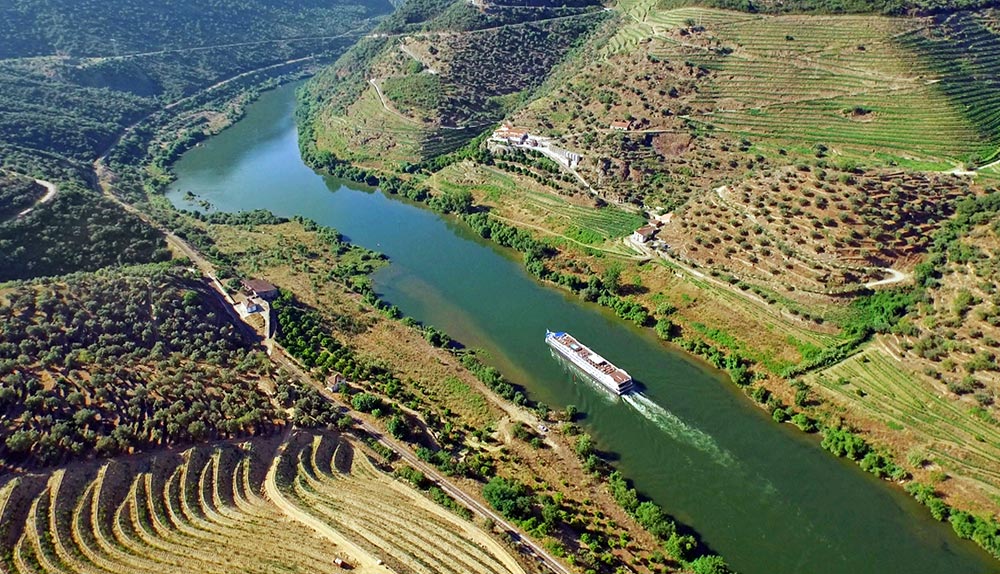 |
NDR Television, 9.00 p.m.
La Réunion is not only known for the famous Bourbon vanilla that is grown and processed here; in the remote mountain village of Cilaos, the best French winemaking tradition is also cultivated. In the southernmost wine-growing region of France, Nono Dijoux produces noble growths: Pinot Noir and Chenin Blanc. For many villagers, however, his top wines are too harmless. Amateur winegrowers rely on a forbidden grape variety with the medium sweet sounding name Isabelle. Its nickname "Le vin qui rend fou" (the wine that makes you crazy) is more appropriate. It contains alarmingly high levels of the toxic chemical methanol. But the residents love Isabelle so much that they are relaxed about the ban on cultivation. For them, as true descendants of Asterix, the rebellious Gaul, rules are there to be broken. That, too, is typically French.
N24 DOKU, 8.40 a.m.
Historic drink - where did the first wine come from and how is it made?
SWR Television, 11.45 a.m.
3sat, 4.10 a.m.
Along the Costa Brava, a slow train takes you back in time. A historian accompanies the travellers to Vallarta. There, in the Stone Age, people carved their stories into rocks. On a plateau lies Bullas, one of the smallest wine-growing areas in Spain. The special grape Monastrell grows here. It is used to make heavy wines.
SWR Television, 8.15 p.m.
Three is a magic number. From the three musketeers to the three from the petrol station to the divine trinity, to name just - all good things are... - three examples. In the Grimm fairy tale there are "three brothers", just as there are at the Wagner winery in Essenheim, Rheinhessen. Together they run their parents' farm as winegrowers. Andreas (41) is the eldest and also the best known as a crime writer. But there is also a lot to tell about his brother Uli or Christian, the youngest. The Wagner estate lives from its characters and from the cohesion of the family.
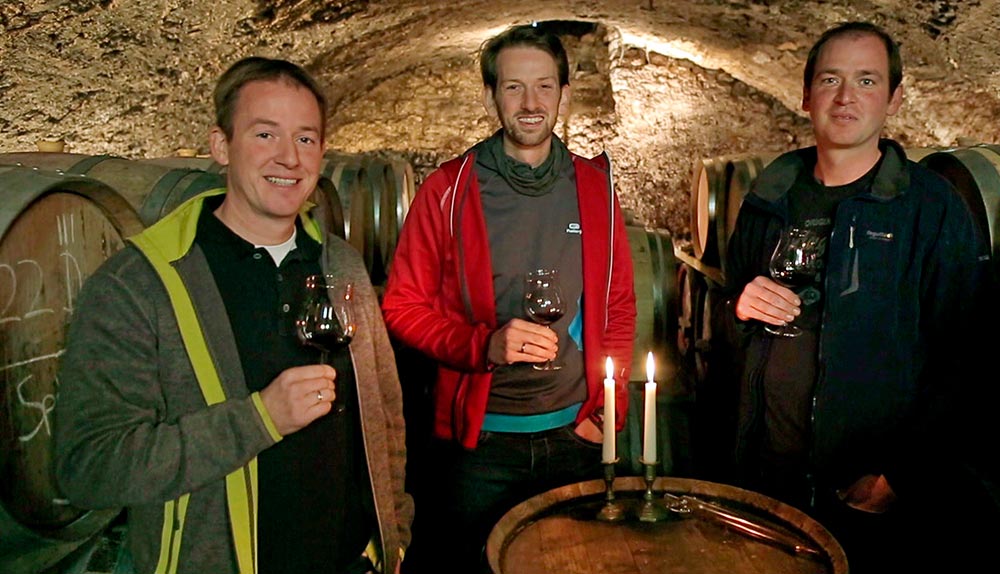 |
hr-fernsehen, 8.15 p.m.
The Rheingau and its wine have often been sung about - and filmed almost as often. But despite all the idylls and clichés: time has not stood still in this region either. Even in the beautiful Rheingau, residents - and especially the winegrowers - have to face new challenges. These include dealing with the clearly noticeable "climate change" as well as the search for modern forms of production and marketing. And of course, the Rheingau and its wine have also become a bit "multicultural" and globalised. The film observes how the wine develops in 2017 right up to the pressing.
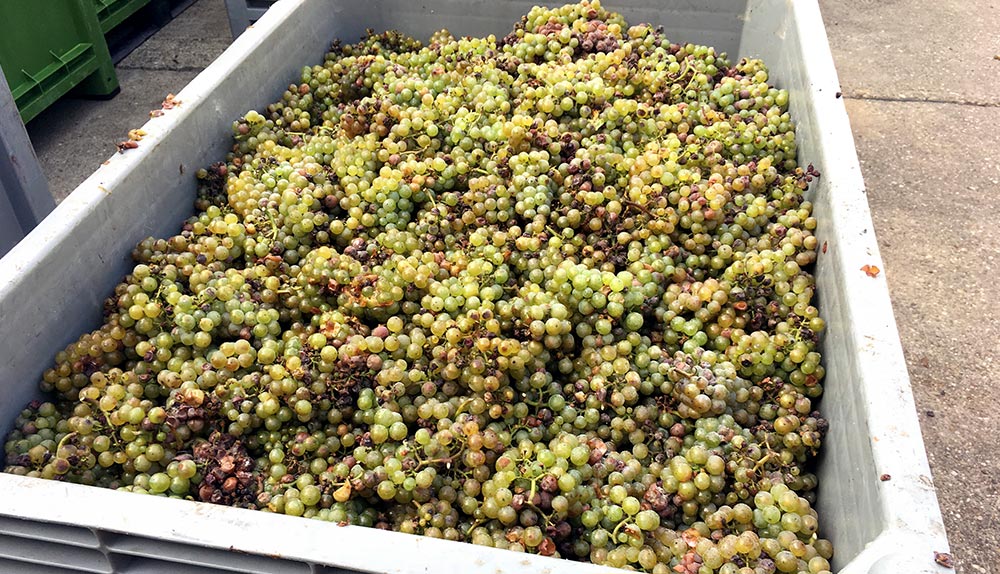 |
WDR Television, 3.15 p.m.
Nowhere is South Tyrol, Italy's northernmost province, more Mediterranean than around Lake Kaltern. It is one of the warmest bathing lakes in the Alps and surrounded by a large wine-growing area. Wine has made the area prosperous. The film introduces two young South Tyrolean women who run a multilingual online magazine, a vintner who demonstrates a spirit of innovation, and a restorer who rescues centuries-old tiled stoves. The film also takes us to the village of Tramin on the Wine Road, the namesake of the white grape variety Gewürztraminer. The village causes a stir with the contemporary architecture of its cellar cooperative and with one of the most original carnival parades in the Alpine region.
SWR Television, 11.45 a.m.
NDR Television, 9.15 a.m.
The Swiss writer Martin Suter is one of the most popular contemporary authors. His books are on the bestseller lists in France and Germany. Stylistic elegance, eloquence and punch lines characterise his work. Like Weynfeldt, the title character of his latest novel, Suter also cultivates a refined lifestyle. He spends the summers on his finca in Ibiza, where he cultivates vines and harvests olives. During the winter he lives with his family in Guatemala. His novels are also written there.
rbb Fernsehen, 3.15 p.m.
The noble ladies travel to the Moselle in the fifth episode of "Von und zu lecker". Irmgard von Canal and her husband Andreas are looking forward to showing the five guests around the 15th century vineyard. The estate includes a stylish manor house with a view of the Moselle, a large park and over five hectares of vineyards, which are among the top sites in the area. The lady of the manor is a passionate cook and of course only the best wine from her own estate is good enough for the Riesling zabaione for dessert.
SWR Television, 9.00 p.m.
Luxembourg's top chef Léa Linster has invited the "Lecker aufs Land" ladies to her home.
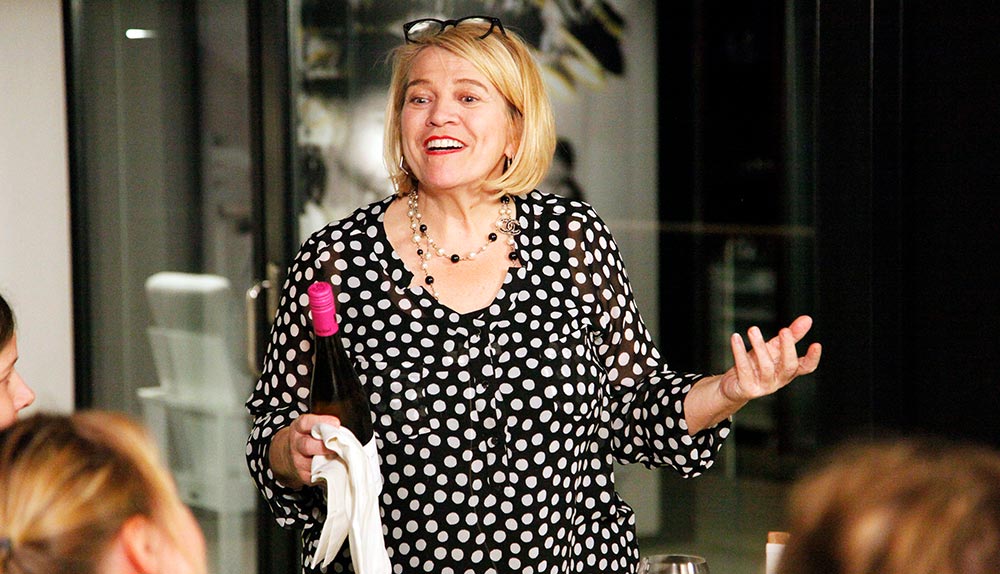 |
hr-fernsehen, 9.00 p.m.
The Bergstrasse is a place of longing for stressed city dwellers. Mild climate, good wine, charming landscape, and right in the middle of this Hessian Tuscany: Bensheim. It's a great place to live and discover: Art Nouveau villas, red Riesling, French bread, Mexican delicacies or even cigars from Cuba. The landgraves and grand dukes of Hesse-Darmstadt chose Bensheim-Auerbach as their summer residence. They enjoyed the earliest almond blossom far and wide here. They will also have known the tobacco from the region.